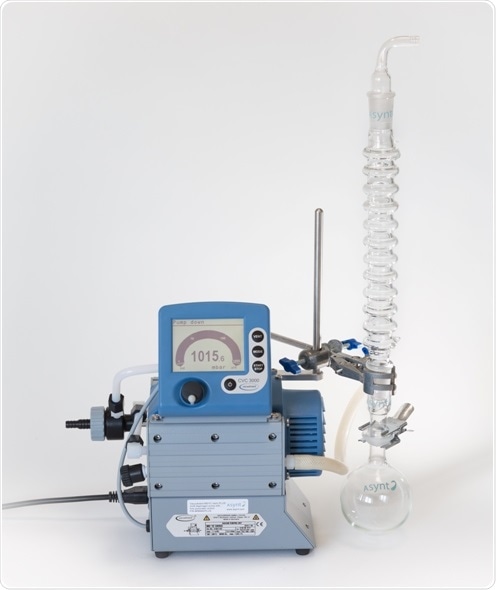Jan 5 2017
Asynt has announced a new post-pump adapter kit that enables its CondenSyn air condenser to be used as an effective exhaust trap for laboratory vacuum pumps.

Rotary evaporators typically have an integral water or dry ice condenser which, when combined with a well-controlled automatic vacuum pump, provides an effective trap for most solvent vapours. However some solvent will always escape the condenser trap and make its way into the exhaust of the vacuum pump and out into your laboratory environment.
In independent testing by Sygnature Discovery (Nottingham, UK) - Asynt's CondenSyn air condenser and adapter kit has been proven to trap additional vapours escaping from rotary evaporators ensuring a greener and more 'worker safe' environment without using any additional cooling water or dry ice.
Proven in over 1000 installations worldwide the Asynt CondenSyn air condenser is an affordable high-surface-area air condenser which is both safe and operationally effective. The robust design of CondenSyn is derived from a new borosilicate glass manufacturing technique and this, together with a proprietary multiple hyperbolic profile, ensures optimum heat removal as vapours pass along its length. CondenSyn additionally incorporates a non-roll feature to help prevent accidents if left on a lab bench. Offering clear visibility of ongoing experimental reflux, the Asynt CondenSyn is easy to clean and maintain.
Source: http://www.asynt.com/